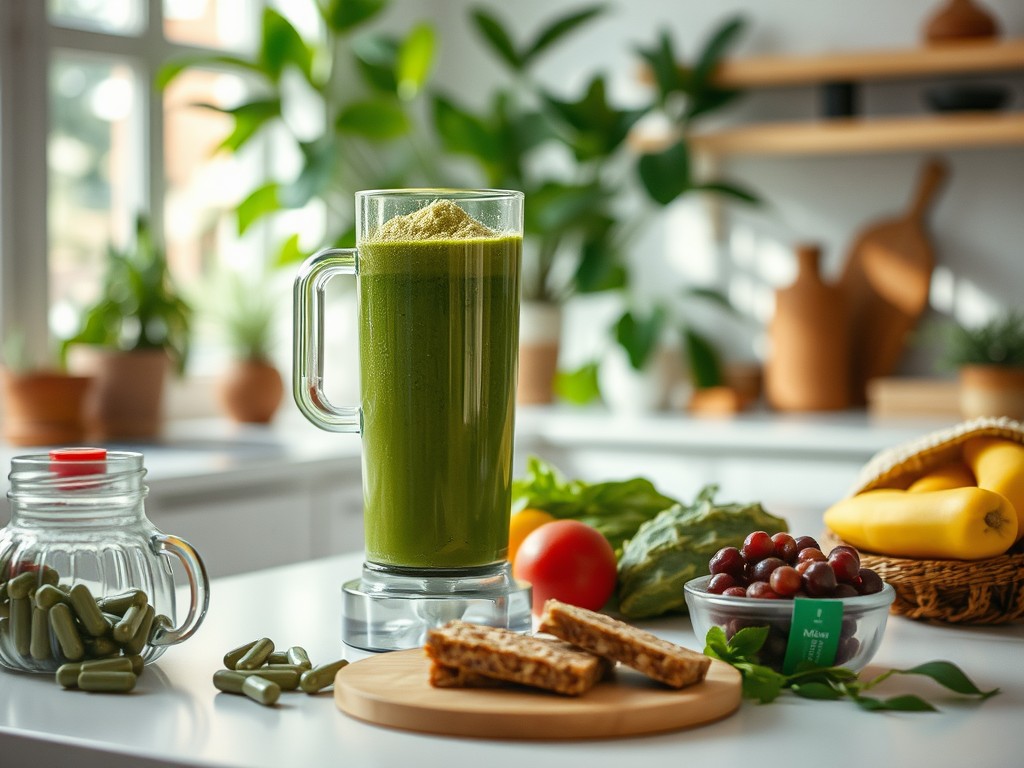Spirulina, a blue-green algae that thrives in both fresh and saltwater, has gained considerable attention in recent years due to its remarkable health benefits. This nutrient-dense superfood has been celebrated for centuries, especially in traditional cultures, but it has only recently been recognized by the broader wellness community for its potential. From boosting energy levels to supporting immune function, spirulina is a powerhouse of nutrients that can enhance overall well-being.
What Is Spirulina?
Spirulina is a type of cyanobacteria (commonly known as blue-green algae) that can be found in both saltwater and freshwater. Its vibrant blue-green color comes from a combination of chlorophyll and phycocyanin, pigments that are responsible for the algae’s remarkable health properties. Spirulina has been consumed by humans for over a thousand years. Ancient civilizations, including the Aztecs, were known to use spirulina as a major source of nutrition due to its high protein content and wide array of vitamins and minerals.
While the use of spirulina in daily diets is not a new concept, modern science has only recently started to fully explore its benefits. Today, spirulina is commonly sold in powder or tablet form and is a staple ingredient in health supplements, smoothies, and protein shakes.
Spirulina’s Nutritional Profile: A Powerhouse of Nutrients
One of the reasons spirulina is often considered a superfood is its impressive nutritional profile. It’s a rich source of protein, vitamins, minerals, and antioxidants, making it an ideal supplement for vegans, vegetarians, or anyone looking to improve their overall health.
- High-Quality Protein: This algae is composed of about 70% protein by weight, making it one of the most protein-rich plant foods available. Just one tablespoon of the powder contains around 4 grams of protein. This makes it an excellent choice for vegetarians, vegans, and athletes who need a plant-based protein source to help repair and build muscles.
- Vitamins and Minerals: The algae is a rich source of vitamins such as the B vitamins, including B1, B2, B3, B6, and B12, which are crucial for energy production and maintaining a healthy nervous system. It also contains vitamin K, which is vital for bone health, as well as minerals like iron, magnesium, potassium, and calcium, which support the body’s various functions.
- Antioxidants: The presence of antioxidants, such as phycocyanin, beta-carotene, and chlorophyll, plays a significant role in fighting oxidative stress and inflammation in the body. These antioxidants help reduce the risk of chronic diseases, improve skin health, and strengthen the immune system.
- Essential Fatty Acids: While it doesn’t contain as much fat as other superfoods, this algae provides omega-3 and omega-6 fatty acids. These essential fats support brain health, reduce inflammation, and contribute to cardiovascular health.
The Science Behind Spirulina’s Health Benefits
1. Boosts Immune System Function
One of the most well-known benefits of this blue-green algae is its ability to enhance immune system function. Studies show that it helps stimulate the production of white blood cells and antibodies, which are essential for combating infections. Additionally, the antioxidants and vitamins it contains further enhance immune defenses, making it easier for the body to ward off diseases.
A Personal Experience: I recall a time last year when I was feeling constantly run down due to a hectic work schedule and a lack of sleep. After starting a daily routine of adding spirulina powder to my morning smoothies, I noticed a significant difference in my overall energy levels. I was less susceptible to colds, and I had a greater sense of vitality. While it didn’t completely eliminate stress, it certainly helped support my body’s defense mechanisms.
2. Improves Muscle Strength and Endurance
Athletes and fitness enthusiasts have been incorporating this superfood into their routines for years, with good reason. Research has shown that it can improve muscle strength and endurance by increasing the body’s oxygen utilization during physical activity. This can lead to enhanced athletic performance and quicker recovery after exercise.
A Friend’s Story: A friend of mine, who’s a marathon runner, shared that she began incorporating spirulina into her training regimen to enhance her endurance. She noticed that her post-run recovery time shortened, and she experienced less muscle soreness the day after races. It wasn’t a magical fix, but it certainly made her training and recovery more efficient.
3. Supports Cardiovascular Health
Spirulina has been shown to improve heart health in various ways. For instance, studies have suggested that it can help lower blood pressure, reduce bad cholesterol levels, and improve blood lipid profiles. These effects contribute to a lower risk of heart disease and stroke, making spirulina a great addition to a heart-healthy diet.
A study conducted on individuals with high blood pressure revealed that taking spirulina supplements for several weeks led to a noticeable reduction in both systolic and diastolic blood pressure. This makes spirulina an excellent natural option for those looking to improve their cardiovascular health.
4. Helps with Weight Loss
While no single food or supplement can guarantee weight loss, this algae has been shown to aid in weight management. Its high protein content helps curb appetite, while its omega-3 fatty acids support fat metabolism. Some studies suggest that regular consumption of the algae may help reduce body fat and support a healthy weight.
A Personal Anecdote: When I was trying to shed a few extra pounds, I added spirulina to my daily routine, particularly in the form of smoothies. It helped curb my cravings for unhealthy snacks, especially in the afternoon when my energy tended to dip. I didn’t see rapid weight loss, but it certainly made me feel fuller longer and more energized throughout the day.
5. Supports Detoxification
Spirulina is often touted for its detoxifying properties. Its high chlorophyll content helps the body eliminate toxins, heavy metals, and other harmful substances. The antioxidants found in spirulina also play a role in protecting the liver and kidneys from oxidative damage, thus supporting the body’s natural detoxification processes.
Example: I once followed a short detox program that included daily doses of algae. After two weeks, I noticed that my skin appeared clearer, and I felt less bloated. While I didn’t experience dramatic changes, the detox process left me feeling more energized and refreshed.
How to Incorporate Spirulina Into Your Diet
If you’re interested in adding spirulina to your diet, there are several ways to do so. It’s available in powder, tablet, and capsule forms, allowing you to choose the most convenient option for your lifestyle.
- Smoothies: One of the easiest and most popular ways to consume spirulina is by adding it to smoothies. Start with half a teaspoon of spirulina powder and gradually increase the amount as you get used to its flavor.
- Energy Bars: Many energy bars on the market include spirulina as an ingredient. These are a convenient option for anyone looking to add spirulina to their diet while on the go.
- Soups and Salads: Spirulina powder can be sprinkled onto soups or salads for an added nutritional boost. It’s also a great addition to salad dressings.
- Supplements: If you don’t like the taste of spirulina, taking it in supplement form is a good alternative. Spirulina tablets or capsules are easy to swallow and ensure that you’re getting the right dose.
Final Thoughts
Spirulina is undoubtedly a nutritional powerhouse, offering many health benefits. Whether you’re looking to boost your energy levels, enhance your immune function, or improve your athletic performance, this supplement is a natural and effective to include in your wellness routine. While it’s not a cure-all, its combination of protein, vitamins, minerals, and antioxidants can support overall health in meaningful ways.
For those new to spirulina, I encourage you to start with a small amount and gradually increase your intake. Listen to your body, and remember that no supplement can replace a balanced, nutritious diet. With time and consistent use, you might find that spirulina becomes an indispensable part of your health journey.

